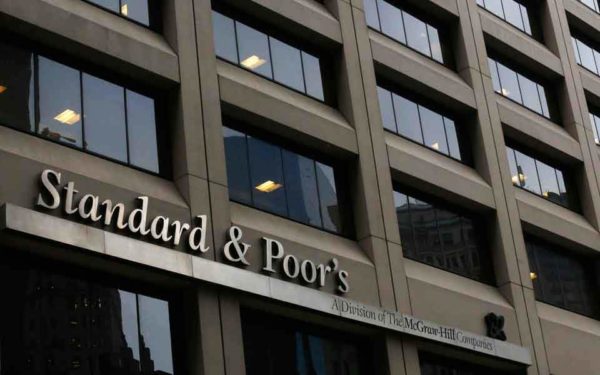S&P Global Ratings downgraded three of Lebanon’s top banks to “selective default,” from CCC, following similar ratings actions by other agencies due to measures implemented by the country’s central bank that cut deposit rates by half and restricted client access to their funds.

The long-term issuer credit ratings on Bank Audi, Blom Bank and BankMed were cut and in tandem S&P lowered the short-term issuer credit ratings on Bank Audi and Bankmed to selective default.
“We lowered our ratings to ‘SD’ because, in our opinion, private individuals’ lack of access to their bank deposits on time and in full, different remuneration from the original contractual terms, and constraints to their ability to transfer funds abroad constitute a risk for depositors of losing the benefit of their agreements and therefore a selective default,” the rating agency said late Wednesday.
S&P added it believes these measures could be further “tightened in the future since liquidity in Lebanon appears to be diminishing, causing banks to possibly face near-term mounting pressure on their funding positions”.
The downgrade by S&P comes a week after Moody’s Investors Service downgraded Bank Audi, Blom Bank and Byblos Bank to ca from caa2 and said an emergency directive by the central bank “constitutes a deposit default”. Fitch downgraded Bank Audi and Byblos Bank’s long- and short-term issuer default ratings to restricted default status. Fitch also downgraded the banks’ viability ratings to f from ccc-. The central bank’s instructions represent “a material reduction in terms compared with the original contractual terms of banks’ financial obligations”, Fitch said and meet its definition of a restricted default.
Lebanon is facing its worst financial crisis since the end of a 15-year civil war in 1990. On December 4 the central bank instructed banks to cut interest rates on dollar and Lebanese pound deposits by half. It also put in place a six-month cap of 5 per cent for local currency deposits received on or renewed after December 4. The crisis has led to the Lebanese pound losing about 20 per cent of its value against the US dollar in the local black market.
The deteriorating situation prompted caretaker prime minister Saad Hariri who resigned just over 50 days ago to turn to the International Monetary Fund and the World Bank as the impasse puts the country on the precipice of an economic meltdown. An IMF bailout package could devalue the currency and require the strict implementation of delayed structural reforms in tandem with austerity measures that are tied to the disbursement of any funds.
Though central bank governor Riad Salameh said in November, there are no plans to impose capital controls or a haircut on depositors, some in the country are calling for a haircut on deposits. A haircut is a financial term used to describe a devaluation of an asset to provide a cushion to lenders. In 2011 depositors of banks in Cyprus, exposed to the Greek debt crisis, lost as much as 60 per cent of their uninsured deposits on balances of more than €100,000 (Dh408,000). The measure was a requirement at the time for Cyprus to secure a €10 billion bailout from the EU.
Citizens blame Lebanon’s political elite for widespread corruption and nepotism, which they say contributed to the country accruing $86bn (Dh315.6bn) of public debt equivalent to 150 per cent of gross domestic product, one of the highest ratios globally.
Lebanon needs to pay $1.2bn due in March when a Eurobond hits maturity. Another $700m are due in April and $600m in June. The crisis has increased the yield on the country’s bonds threefold. Lebanon was able to escape the 2008 global credit crisis relatively unscathed due to a high interest rate regime that lured more than $1bn a month in capital flows. The funds helped the country service its fiscal and current account deficits. But the crisis has slowed the flow funds and led to negative deposit growth at Lebanese lenders.
“Because we expect economic conditions to remain stressed in the coming years, we don’t expect inflows of deposits to resume, thus likely keeping the banking system’s funding structure under pressure,” S&P said. “For this reason, we have revised our industry risk score on Lebanon under our Banking Industry Country Risk Assessment to ’10’ from ‘8’, on a scale of ‘1’ to ’10’ where ’10’ denotes the highest risk. Lebanon’s banking system remains in BICRA group ’10’.”
THE NATIONAL

Leave a Reply
You must be logged in to post a comment.